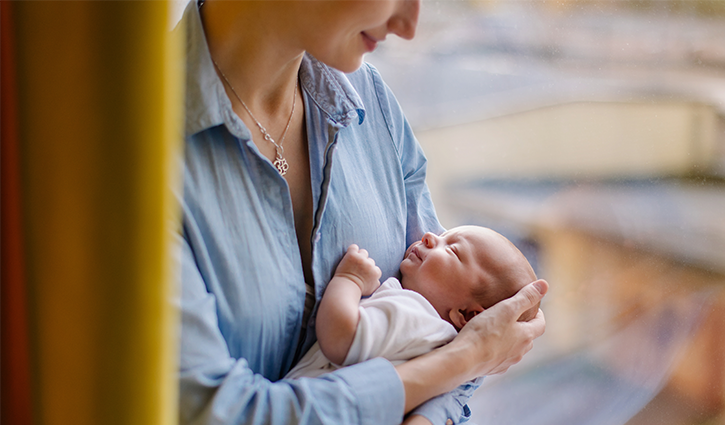

Many parents believe that their baby has a sleep issue because they need to help them to fall asleep. They’ve been told that their baby has to learn to sleep independently and it’s a parent’s job to teach them. They hear repeatedly the old ‘drowsy, but awake’ advice, but their baby simply won’t fall asleep like that so they feel that there must be a problem.
A problem with their baby or a problem with their parenting.
This belief can then lead to feelings of failure, guilt, frustration, confusion, and even anger. Comparing their baby to others who self-settle and sleep long stretches only amplifies these emotions and diminishes a parent’s confidence.
The truth about nurturing baby to sleep
If you have been led to believe that what you’re doing is ‘wrong’, and can resonate with the above, which one of these settling methods do you think is a problem?
- Feeding to sleep
- Cuddling to sleep
- Rocking to sleep
- Bouncing on a fit ball to sleep
- Lying with them until they sleep and then transferring them to their bed
- Pushing them around in the pram to sleep
- Driving to get them to sleep
- Singing to them to sleep
- Playing lullabies to help them sleep
- Stroking their face until they fall asleep
- Patting them to sleep
- Rubbing their back to sleep
- Sleeping beside them and then ninja rolling away when they’re asleep
- Bringing the baby into their bed so everyone can get some more sleep
Actually, none of these ways of supporting your baby’s sleep are:
- Bad habits
- Negative sleep associations
- Making a rod for your own back
- Spoiling your baby
- Teaching your baby to rely on you for sleep
- Your baby’s way of manipulating you
- Permanent
Have you ever felt or been told any of the above statements about the way you settle your baby to sleep? They’re actually all false and very harmful.
Nurturing your baby to sleep is important
Nurturing strategies work with biology to encourage and promote sleep. It is in fact instinctual, nurturing, bonding, healthy, natural, simple, reliable, and important for your baby’s development. It benefits their relationships, emotional intelligence, health, and wellbeing now and for life.
So, think of this as your official permission slip. Continue doing what you’re doing and following your instincts if it’s working for you and your little one. Sleep cannot be rushed, controlled, or trained, and most infants around the world rely on their caregivers to help them sleep.
Baby sleep: expectations versus reality
Expecting a baby to sleep 12 hours a night is unrealistic, even with feeds, except for high sleep needs children. It’s biologically normal for a baby to wake overnight up to 18 months of age and even beyond for some children.
There is never any reason to leave a baby to cry alone, so a baby waking at night shouldn’t be treated with sleep training. They need lots of love, comfort, and reassurance. Encouraging a sense of security and trust in the world means that sleeping longer stretches will come when they are developmentally and emotionally ready to.
If your current nurturing method isn’t working
However, if doing any of these things has become a problem for you, if they stop working, if you’re really struggling physically or mentally, or they’re unsafe for your baby…then it’s possible to gradually, gently, respectfully, and compassionately make some changes. Making any kind of changes to a baby’s sleep conditions should never be distressing to anyone in the family, most of all your baby.
To further help inform your choices about your baby’s sleep, you might also enjoy reading:
- Baby sleep: what’s normal and what isn’t
- Sleep training approaches and alternatives
- How to holistically optimise your baby’s sleep
If you would like to book a free initial consultation with our resident holistic infant sleep and wellbeing specialist, Kara Wilson, head over here to find out more.























